The delegation's agenda included critical meetings with global financial and technology behemoths: ICBC, Huawei, UnionPay International (UPI), and Alipay.
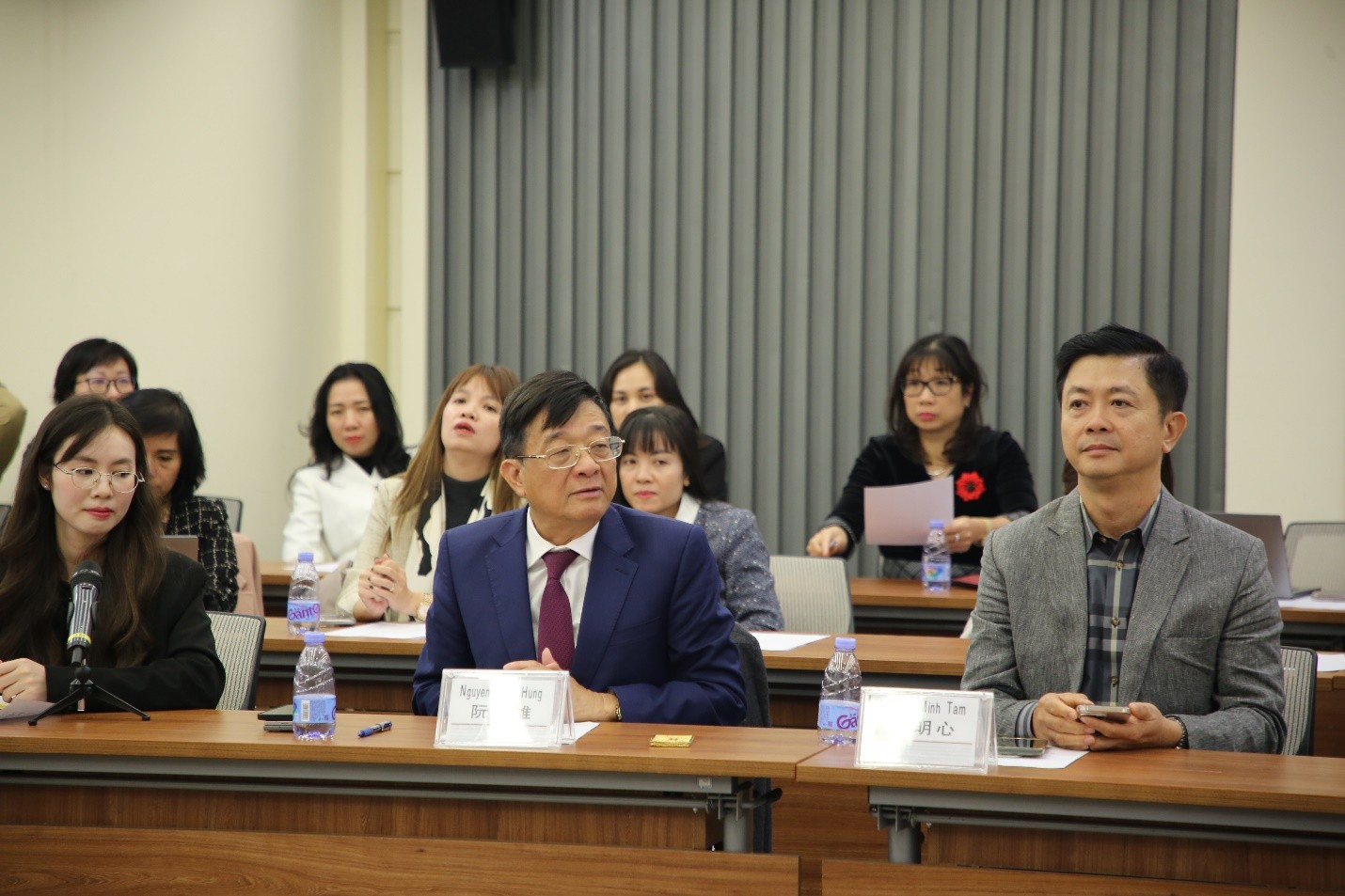
VNBA Vice Chairman cum General Secretary Nguyen Quoc Hung and delegation at the meeting
ICBC: Digital card strategy and risk management in the Big Data era
The Industrial and Commercial Bank of China (ICBC) is consistently ranked as the world’s largest bank by total assets and tier 1 capital. As one of China’s "Big Four" state-owned commercial banks, ICBC operates globally, including a branch in Vietnam, making it a critical entity in the international financial landscape.
The delegation received a detailed presentation on ICBC's Card Development Strategy and Risk Management in the Digital Age. The bank outlined the three distinct phases of card development, illustrating the transition from traditional plastic cards to integrated technology and ultimately to mobile digital payment solutions.
A central theme was ICBC's application of advanced risk management techniques. The bank showcased its use of the MaxData large-scale data warehouse platform to consolidate user data, thereby enhancing risk modeling capabilities, personalizing services, and improving anti-fraud measures.
At the meeting, Dr. Nguyen Quoc Hung expressed particular interest in ICBC’s experience with data convergence policies and how this approach supports the bank's digital risk control framework. Dr. Hung emphasized the need for Vietnamese banks to leverage such models to effectively combat card fraud and digital credit risks, while also ensuring robust Anti-Money Laundering (AML) compliance in an increasingly digital environment.
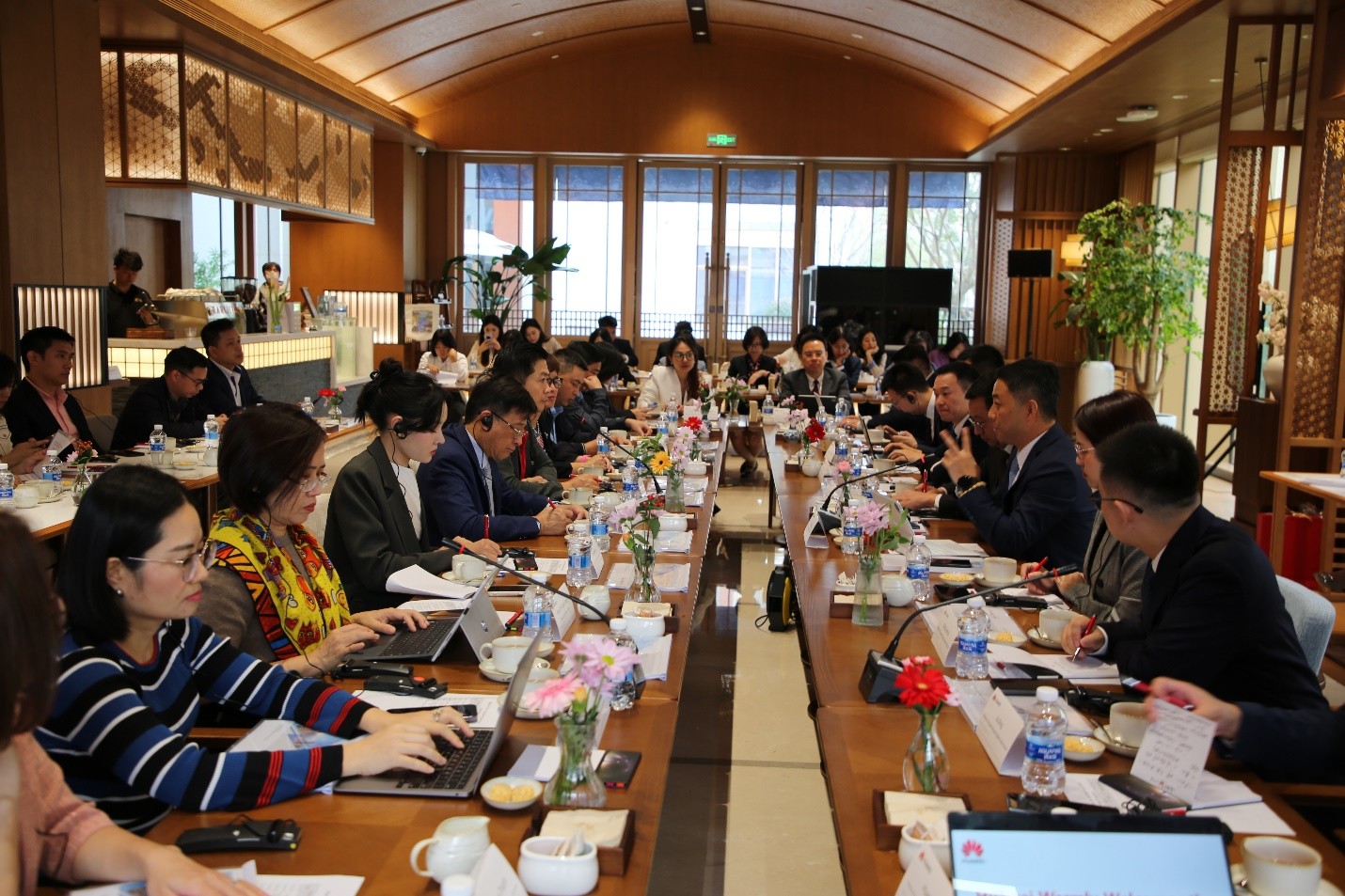
Huawei: The ICT backbone for bank digital transformation
Huawei is a global leader in information and communications technology (ICT) and cloud computing infrastructure, known for massive R&D investment. In the financial sector, Huawei has partnered with over 300 financial institutions worldwide, including 53 of the world's top 100 banks, to deploy Cloud and AI-driven solutions.
The working session on the Morning, October 27, 2025 focused on the critical role of ICT infrastructure and cloud computing in bank digital transformation, stressing that speed, security, and scalability are non-negotiable. Huawei presented its specialized technology solutions for the financial services sector and highlighted successful transformation models:
-
Hong Leong Bank: The strategic direction of becoming a “data bank.”
-
CMB: A strategy of digital marketing based on salary, asset, and customer profile data.
-
BCM: The use of AI for real-time, needs-based product personalization.
-
ICBC: Its policy of user data convergence with the MaxData platform.
The VNBA delegation also toured the Huawei Lianqiuhu R&D Center.
The delegation probed deeply into the resilience and security of cloud infrastructure, particularly in managing high transaction volumes and protecting sensitive customer information. He sought assurances and details on the disaster recovery standards and international security certifications that Huawei implements for its banking clients to guarantee service continuity and data integrity.
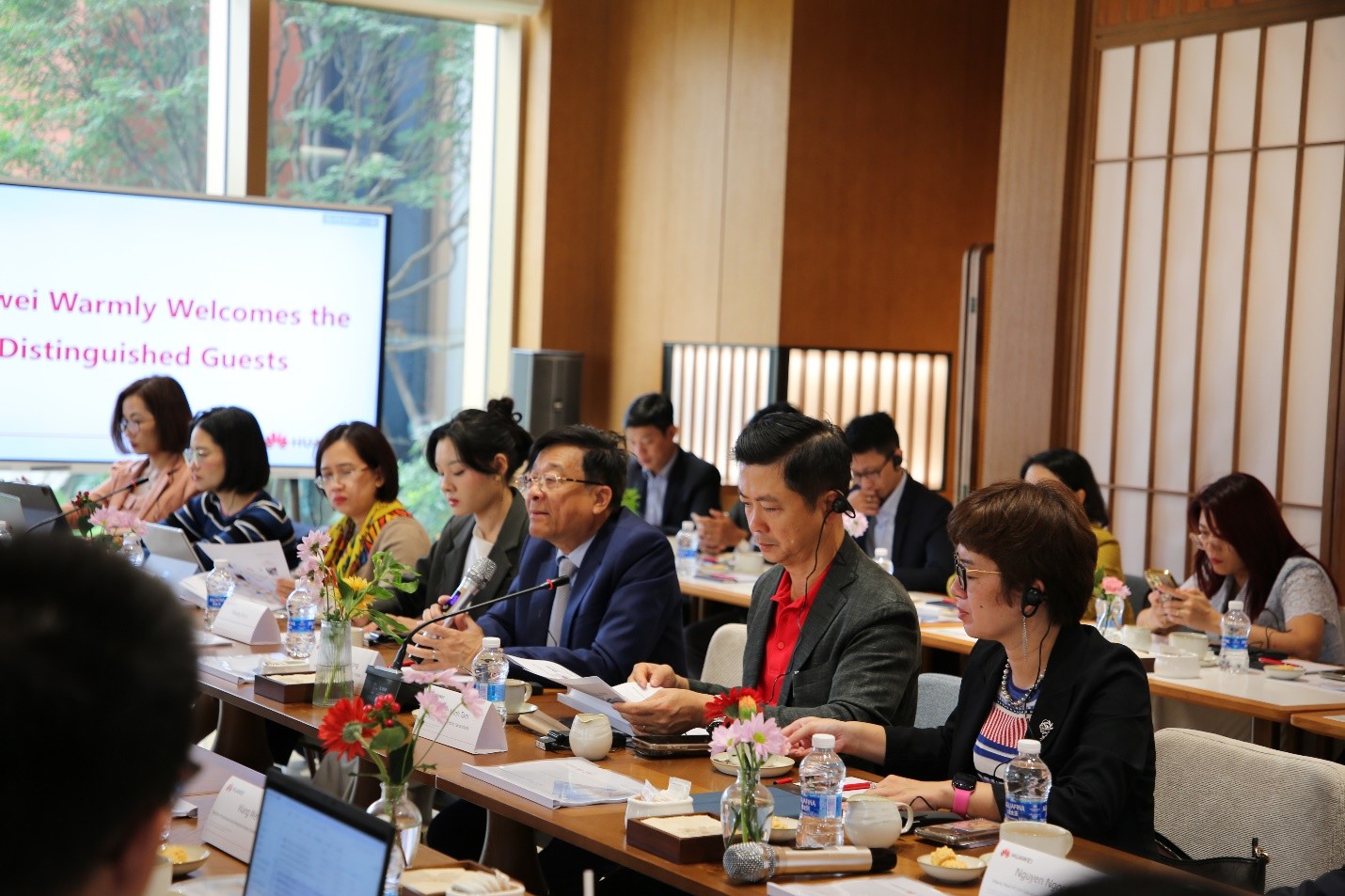
UnionPay International (UPI): Global strategy and secure mobile payments
On the afternoon, October 27, 2025, the delegation visited UnionPay International (UPI), a subsidiary of China UnionPay that manages the global operations of the world’s largest card payment network by card issuance. UPI’s extensive network covers over 180 countries and regions, focusing on providing secure and efficient payment services globally.
UPI presented its global strategy and domestic expansion efforts, along with advanced security features such as tokenization for banking and e-wallet applications. A significant part of the discussion covered existing cooperation programs with Vietnamese partners, notably VP Bank and NAPAS (Vietnam National Payment Corporation), aimed at optimizing card acceptance and usage within the Vietnamese market.
The VNBA leadership expressed strong interest in collaborating with UPI to develop multi-application chip cards and enhance secure cross-border payment solutions. Dr. Hung specifically inquired about the best practices for implementing tokenization within the Vietnamese banking-e-wallet ecosystem, noting: "The tokenization solution is vital for enhancing mobile payment security. We aim to learn how UPI balances user convenience with the highest level of security standards for Vietnamese consumers."
Alipay: Decoding the All-in-one fintech ecosystem
On the morning, October 28, 2025, the delegation had a working session with Alipay -part of Ant Financial Services Group - It is a leading global mobile payment platform and e-wallet with over 1 billion users. It has evolved beyond a payment gateway into a comprehensive fintech platform, offering services ranging from payment and money transfers to investment (Yu'ebao) and micro-lending. Alipay is globally recognized for pioneering the widespread use of QR codes for payments in China.
Alipay shared its remarkable development milestones, its extensive strong partnership network (with over 65 global financial institutions), and its suite of diverse payment solutions. A key learning point was the successful evolution and mass adoption of the QR code, which revolutionized consumer payment behavior in China.
During the discussion, Dr. Hung concentrated on two core areas: Risk management within an open ecosystem and the role of big data in micro-credit issuance and other issues such as "How does Alipay effectively manage payment risks within such a large, extended ecosystem, especially with numerous linked partners? Furthermore, how can Alipay’s model for micro-credit issuance, based on payment data and user behavior, be adapted for the Vietnamese market to promote financial inclusion while ensuring compliance with consumer protection regulations?"
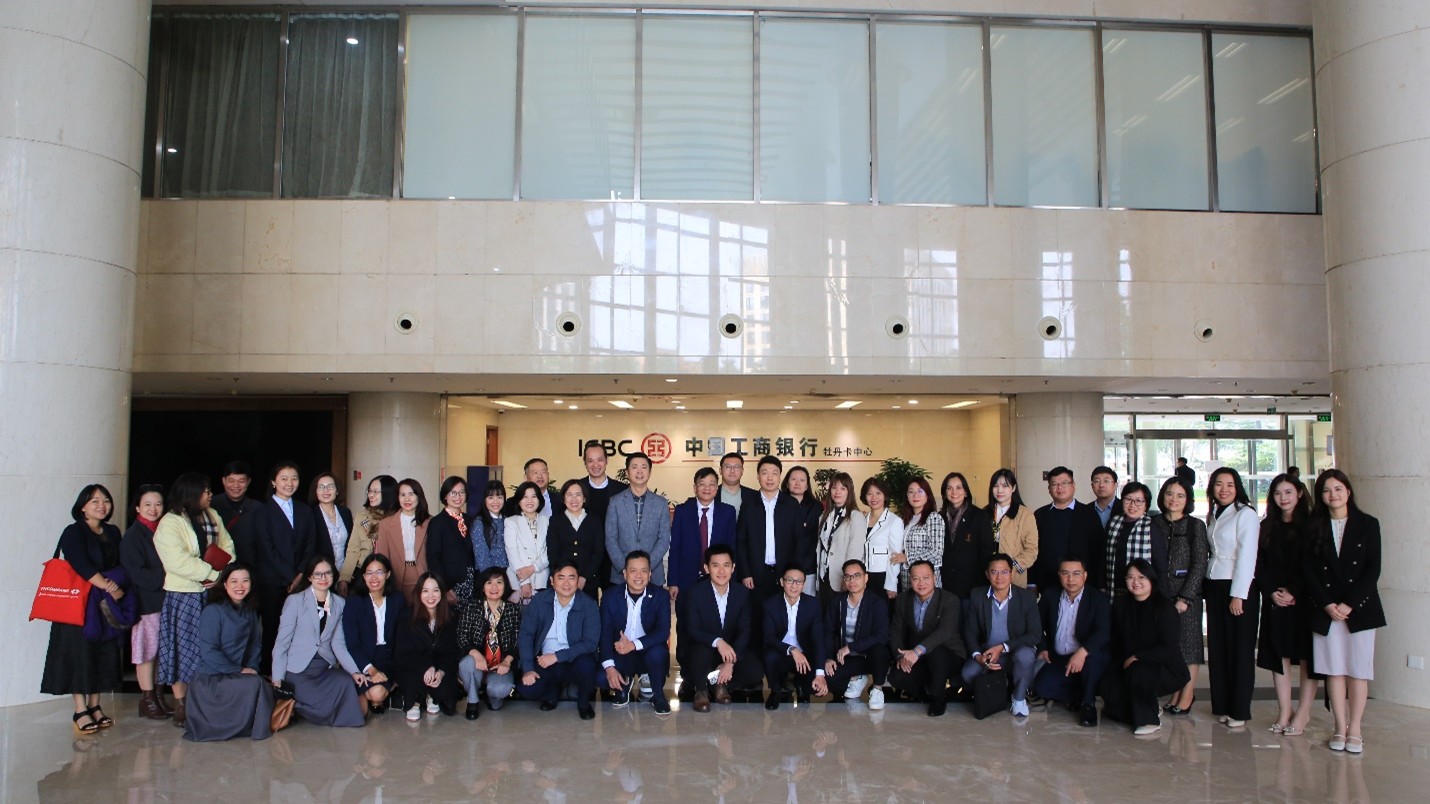
The mission offered invaluable, real-world insights into a mature FinTech ecosystem where traditional banks (ICBC) and technology giants (Huawei, Alipay) collaboratively drive financial innovation.
The critical lessons VNBA brings back include: The necessity of investing heavily in data infrastructure and AI capabilities, the urgent need to adopt tokenization for enhanced mobile payment security, and the strategic importance of building a symbiotic partnership model between banks and fintech companies to accelerate financial inclusion and the digital economy in Vietnam.
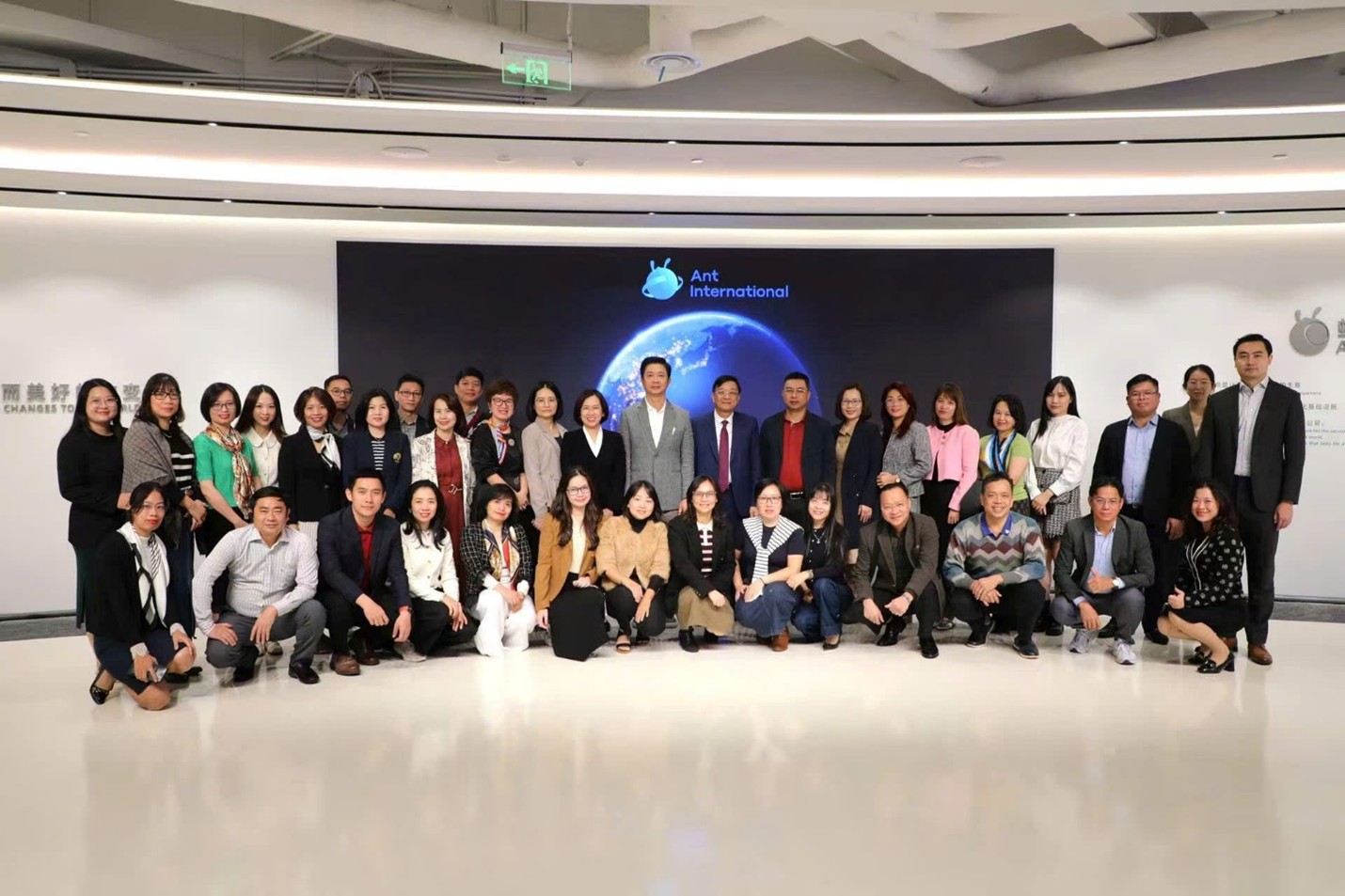
VNBA News
